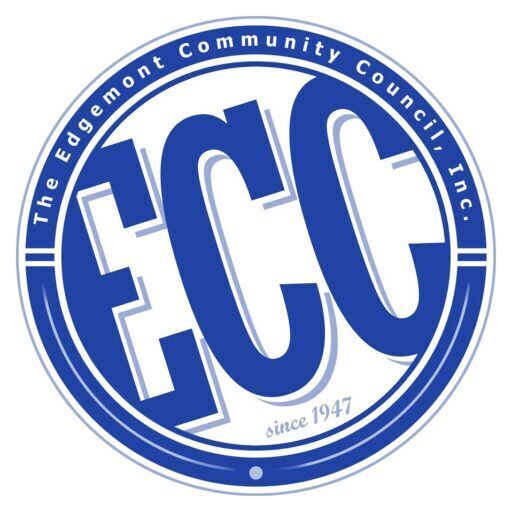In a hastily arranged meeting at noon today, the Greenburgh town board authorized Town Supervisor Paul Feiner to enter into an undisclosed long-term agreement with a Peekskill affordable housing developer to convert WestHELP’s 108 efficiency apartments into 54 units of affordable housing and then manage them for the Town for the remaining 15 years of the Town’s lease of the property from Westchester County.
The town board approved the deal without making public its terms which, unless the developer picks up some or all of the cost, could potentially mean taxpayers of unincorporated Greenburgh will have to pay millions of dollars to remediate the mold-infested site and then renovate apartments that town officials essentially abandoned when WestHELP ended its sublease with the Town on September 30, 2011 and left the 25-year old county-owned buildings to rot.
Affordable housing developers can usually borrow low interest rate loans to remediate property for affordable housing — but only if the units are to remain affordable for at least 30 years and here, because there is no assurance what will happen when the county assumes control of the property in 2031, it is not known how Marathon will pay for the cost and amortize the cost of its investment.
Mr. Feiner first mentioned that there was to be a meeting today about WestHELP at Wednesday night’s town board meeting after the public finished speaking; no details were provided as to the purpose of the meeting until today when it was too late for the public to ask any questions.
Mr. Feiner reportedly told the media today that the deal did not call for the Town to receive any money from Peekskill’s Marathon Development Group, but he did not disclose how Marathon planned to finance the construction and how Marathon planned to recoup its investment in the 15-years remaining on the Town’s lease, after which time the property, having been cleaned up, renovated and used as affordable housing, will have to be turned over to Westchester County which could, if it wishes, evict any tenants and tear the buildings down.
Under the few terms that were disclosed, the renovated apartments could be rented to economically challenged families with children who would then be free to attend schools in the Valhalla School District.
Observers familiar with the start-and-stop nature of Mr. Feiner’s efforts to deal with the WestHELP problem — a problem he created when, in 2008, he twice refused to extend the lease for an additional ten years — were suspicious that today’s announcement may just be a ruse by Mr. Feiner to generate publicity for himself, noting that Marathon cannot afford to pay for the remediation and renovation without long-term tax credits the Town’s 15-year deal won’t allow for and further noting that the cash-strapped Town won’t foot the bill either, which could mean the news today is more meaningless posturing from Mr. Feiner.
The Town’s announcement today came after Westchester County Executive Rob Astorino apparently reneged on an agreement worked out a few months ago with town officials and county legislator Michael Smith, who lives in the Mayfair Knollwood section of Town about a mile from the WestHELP buildings which are off Knollwood Road on the campus of Westchester Community College. Under the terms of that deal, Marathon would have been allowed to convert the facility into 76 apartments – but all of the apartments had to be “affordable” and leased only to senior citizens with no children.
It is not clear why Mr. Astorino would not approve the deal which, because it was worked out with the blessing of Mr. Smith, a fellow Republican and long-time opponent of affordable housing at WestHELP, and would not have allowed any children from economically challenged families to attend the Valhalla School District, was expected to get the greenlight.
Mr. Astorino is currently facing possible monetary sanctions for noncompliance with the terms of the federal housing discrimination settlement against Westchester County for failing to meet the deadline for constructing affordable housing units in certain mostly white parts of the county. There is speculation that Mr. Astorino was hoping to leverage his approval of the WestHELP affordable housing deal to persuade the federal monitor to drop the sanctions motion and when the federal monitor said no – WestHELP is not in the part of the county that the federal settlement was targeting — he refused to go along with the WestHELP deal.
The idea of the Town simply bypassing Westchester County’s approval – and hiring a company like Marathon to manage the property for the Town as affordable housing – was first raised several years ago by ECC president Bob Bernstein, who pointed out that under the terms of the Town’s lease with the county, entered into in 1990, as long as the Town planned to use the balance of its own lease for affordable housing, county approval of renovation plans could not be “unreasonably denied.”
For years, though, Mr. Feiner and the town attorney had insisted that whatever deal they proposed had to be one that required approval from the County Executive who, because of his longstanding opposition to affordable housing, was not likely to support any proposal from Greenburgh to use the property for that purpose.
Representatives from the county executive’s office have in the past said that because the original concept in 1990 called for the Town to convert the 108 units of “transitional” housing into 54 “affordable housing” apartments, the county would accept no more than 54 such apartments in any plan proposed by the Town. However, there is nothing in writing fixing the number of such future housing units at 54.
Nevertheless, by limiting the number of such units today to 54, the Town is presumably setting the stage for a showdown in court with the county executive who, when presented with such plans by the Town, cannot “unreasonably deny” county approval – which is tantamount to giving approval.
Between 2001 and 2011, WestHELP was largest source of non-tax income to the Town, generating a total of $12 million. However, Mr. Feiner unlawfully gave several million dollars of that revenue to the Valhalla School District in order to compensate taxpayers there for having a homeless shelter within a mile of their homes. A lawsuit brought by Mr. Bernstein and former Dobbs Ferry judge Herb Rosenberg resulted in Valhalla returning some of the money it received.
But after the WestHELP lease came to an end, town officials supported a plan to demolish the housing so that a school for developmentally challenged children could be erected there instead. Mr. Feiner argued that allowing the school to relocate there would result in the Town receiving at least $900,000 a year through the year 2031, but such funding was always contingent on state approval which was denied.
Mr. Feiner then rejected proposals from reputable affordable housing developers, including Marathon, in favor of a proposal from a novice in the field who misrepresented his credentials and promised the Town at least $500,000 a year for the balance of the Town’s lease. That deal collapsed within a few months after it was announced when the developer realized how much it would cost to remediate the premises.

